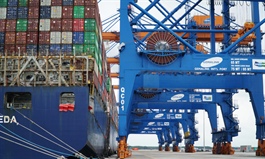Prices increase despite pandemic restrictions easing
Prices increase despite pandemic restrictions easing
While most manufacturing enterprises resumed operations as pandemic restrictions were eased, significant challenges remain because of the rising cost of gasoline and raw materials. The price of consumer goods is expected to increase sharply as a result.

Dang Thi Phuong Ninh, Director of Duyen Hai Economic Development Company (Cofidec), told local media: "Every commodity has increased in price, in which, cooking oil is the ingredient with the highest increase, about 30 per cent higher compared to the same period in 2020 and is expected to increase even higher."
Ninh said prices of raw materials and accessories have increased since early this year and look set to continue to rise.
According to experts, the increasing cost of gasoline and raw materials will put great pressure on consumer spending, and a great burden on businesses, especially in the context of restoring production after a long time of social distancing.
Ninh said the company is facing difficulties in hiring more workers to meet demand, adding that the “high cost of accessories is now the biggest concern.”
As director of Vnflour Co, a firm that produces and supplies flour for brands such as Vifon, Thien Huong Food and CP Food, Nguyen Tran Ngoc Trinh said increasing gasoline and raw materials prices were greatly affecting production since pandemic restrictions have been eased.
Trinh said: "The price of wheat has increased by 30-40 per cent, sometimes even up to 50 per cent, compared to before so we are forced to change the price of raw materials provided to food enterprises. "
Trinh is concerned that the sharp increase in raw material prices would affect product prices in the near future.
Nguyen Thi Thao Vien, Human Resources Director of CJ Food Viet Nam, said the firm was facing the same issue of rising prices but would try to keep prices stable to share difficulties with consumers. She said: “We cannot increase selling prices in the context of people's incomes plummeting.”
Pham Thi Huan, general director of Ba Huan Co, the biggest egg provider in Viet Nam, said: “Currently, while the input costs are increasing by 20-30 per cent, the purchasing power is weak because schools have not opened yet and businesses in industrial zones have not yet come back to their full activities.”
Though the egg firm has not yet raised prices, Huan said: "We hope that purchasing power will increase so that we can keep prices unchanged but if the demand is too low in such situation, we will have to increase prices.”
The food industry is not the only one seeing a rise in prices for raw materials; steel, wood and other enterprises are suffering the same. Nguyen Chanh Phuong, vice president and general secretary of HCM City Fine Arts and Woodworking Association (HAWA), said most materials have seen prices increase.
He said: "The price of paint products increased quickly due to the influence of gasoline and oil prices. From October to November, each week they have increased by 5 per cent."
He added that businesses have to adjust prices, but it is not always easy as they have agreed fixed prices with customers.
Phuong said: "As there are many orders to be finished, firms are concerned about the high production costs. Others are concerned about taking new orders because of the cost."
Phuong said firms must renegotiate prices with their customers and look for cheaper suppliers to save costs.
The price of essential items has increased by 10-30 per cent, and food and beverage service prices have also increased by 10-15 per cent.
According to the market prices, a bottle of one-litre cooking oil has increased from VND3,000 to VND5,000, or an increase of 15 per cent from the prices listed in May. Vegetables, fruits and fresh foods also increased by three and four times compared to July.
An Aeon Viet Nam representative said the increase in prices will affect small retailers and markets first. Big supermarkets, with advanced contracts, can better control the prices.
The Viet Nam Institute for Economic and Policy Research (VEPR) forecasts that inflation pressure will increase in the last months of the year due to the sharp increases in producing prices, adding that this pressure will gradually be transferred to consumer prices.
Around the world, inflation rates have skyrocketed, according to Bloomberg. The media said consumer prices in the US rose at their fastest pace since 1990. Chinese and Japanese producer price indexes fared better than expected and Germany, as the world's fourth largest economy, was no exception.

















